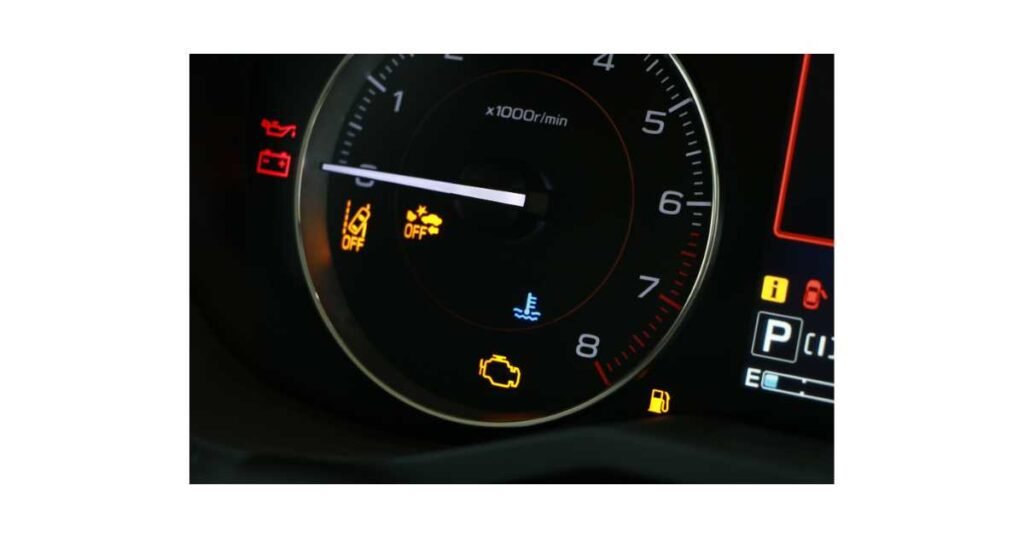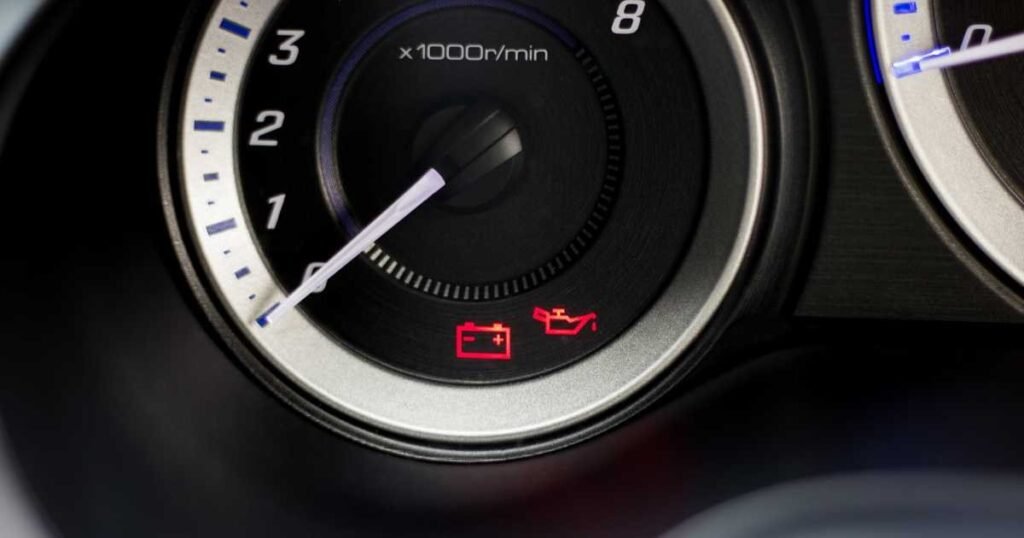As someone who loves cars and has spent many years around them, I’ve seen many drivers react with worry when they see the “Service Engine Soon” light on their dashboard. But don’t worry, fellow drivers! This light signals that there might be a problem, but it doesn’t always mean your car needs an oil change.
Let’s explore the secrets behind this dashboard symbol. You’ll be better prepared to handle it confidently by understanding what it means. Remember, knowledge is power, especially when maintaining your vehicle. So, let’s get started on this journey of discovery together!
Table of Contents
What Does the Service Engine Soon Light Indicate?
If you own a car, you’ve probably seen the “Service Engine Soon” (SES) light on your dashboard. This light is a signal from your car’s engine or emission control system. It could be a reminder for routine maintenance or a warning of a more severe problem. Ignoring this light can lead to further complications, expensive repairs, and even potential breakdowns.
The color of the light often indicates the severity of the issue. A solid yellow or orange light indicates a minor problem or upcoming maintenance needs. It’s a good idea to address it promptly to prevent further issues.
On the other hand, a flashing red SES light signifies a critical problem that demands immediate attention. In this case, it’s best to pull over safely and tow your car to a mechanic or utilize a mobile mechanic service.

What To Do When You See the “Service Engine Soon” Light?
Have you ever been in a car and seen a light that says “Service Engine Soon”? It’s a sign that the car might need to be checked by a mechanic, but it’s not always a big deal.
What This Light Means This light is what the car says: “Hey, I might need a little help here!” It doesn’t mean something is wrong right now, but it’s a good idea to make an appointment with a mechanic. They’re like doctors for cars! They’ll check how many miles the car has gone and look at its past check-ups to figure out what to do.
What Mechanics Does have a unique tool that reads car codes? These codes tell mechanics what might be wrong. It could be something minor, like a gas cap that’s not tight enough or something more significant that needs fixing.
Fixing the Problem If there’s a problem, the mechanic will tell you how to fix it. Sometimes, it’s an easy fix, like tightening the gas cap. Other times, the car might need some parts replaced or repaired.
What are the Common Reasons Behind this Service Engine Soon Light?
When the “Service Engine Soon” light turns on in your car, it’s like a little nudge to check a few things. Here’s what you might look at:
1. Gas Cap Check: If your gas cap is loose or not working correctly, it can release fuel vapors, which can cause the light to come on. Just tighten the cap or get a new one if necessary.
2. Fluids and maintenance: The light could also remind you to change your oil or check your car’s fluids. These help your car run well, so it’s good to look at your car’s manual and see when to do these things.
3. Fuel and Air: If your car doesn’t have enough fuel or the fuel pump has a problem, the light might come on. Fill up your tank; if the light stays on, a mechanic can help figure out why. Also, if your air filters are dirty, they must be cleaned so your car can breathe better.
4. Sensors and Spark Plugs: Your car has an oxygen sensor that helps keep the Air and fuel mixed just right. It can mess with your car’s performance if it’s not working. Spark plugs and wires must also be in good shape for your car to run smoothly. If they’re worn out, it’s time for a change.
5. Keeping Things Clean Sometimes, the fuel in your car can be dirty, making the light come on. Try using clean fuel; if the light doesn’t go off, a mechanic can help. There’s also a sensor called the Mass Airflow Sensor that tells your car how much fuel to use. If it gets dirty, it needs a good cleaning or might need to be replaced.
6. Catalytic Converter: This part helps control pollution from your car. If it’s not working correctly, it can cause the light to blink, so getting it checked out is essential for your safety and the environment.
What are Car Lights, and What do They Mean?
Did you know your car has special lights on the dashboard to tell you when it needs help? One of these lights says, “Service Engine Soon.” If you see this light, you should take your car to a mechanic soon to check it out. If the light is red and blinking, it’s like your car is saying, “Help me now!” you should stop driving and get help immediately.
Your car has a smart part called the Engine Control Unit, or ECU for short. It uses sensors to watch over the engine and ensure everything works okay. If it finds something wrong, it will turn on the warning lights. Some cars even have a special reminder to tell you when it’s time for an oil change or to get a new air filter.
The check engine light can be yellow or red. If it’s a solid yellow light, it means there’s a small problem that you shouldn’t ignore. But if it’s a red light flashing, there’s a big problem, and you need to fix it fast to keep your engine safe.
What is the difference between Service Engine Soon Light vs. Check Engine Light?
In cars, you might see two different lights on the dashboard. One says, “Service Engine Soon,” and the other might show a picture of an engine or say, “CHECK ENGINE.” They’re similar, but they have different jobs.
What the Lights Mean The “Service Engine Soon” light is a friendly reminder that your car might need a check-up soon to ensure everything is okay. It’s all about keeping your car happy and healthy!
The “CHECK ENGINE” light is a bit more serious. It turns on when your car’s engine or the parts that control pollution might have a problem. It’s like your car saying, “Hey, I need help!”
So, if you see these lights, talk to a grown-up or mechanic. They can figure out what your car needs and help fix it.
Why You Shouldn’t Ignore Warning Lights?
You might see lights that say “Service Engine Soon” or “Check Engine.” It’s super important not to ignore these lights. Think of them as your car’s way of telling you it needs a little help.
If you don’t pay attention to these lights, it can cause trouble for your car later. It’s like when you keep using something a lot without taking care of it, it can break down. Also, if you don’t check these lights, your car’s promise to keep running well (that’s the warranty) won’t work anymore.
So, take your car to the mechanic for regular check-ups and fix things when these lights come on. This will help your car stay in great shape and keep you safe on the road.
Final Verdict
Understanding these lights can help you take good care of your car and even save you from expensive repairs in the future. The “Service Engine Soon” light is a friendly reminder for regular car check-ups, while the “Check Engine” light means your car needs attention immediately.
It’s important to check your car’s manual and follow the maintenance schedule. This helps keep your car running smoothly and safely for many fun future trips. So, pay attention to these lights and take good care of your car.
You might find these helpful:
FAQs
What if the “service engine soon” light comes on after a recent oil change?
Sometimes, you might see the “Service Engine Soon” light after you get an oil change. This could be because of a small mistake during the oil change, like a loose gas cap. If you see the light, check to make sure the gas cap is on tight. If the light stays on, it’s a good idea to ask a mechanic to take a look.
Can I ignore the “service engine soon” light?
Even though it’s not an emergency, it’s best not to ignore the “Service Engine Soon” light. It’s like a reminder to take care of your car. Paying attention to it can help stop bigger problems from happening in the future. If you see this light, getting your car checked out is a good idea.


